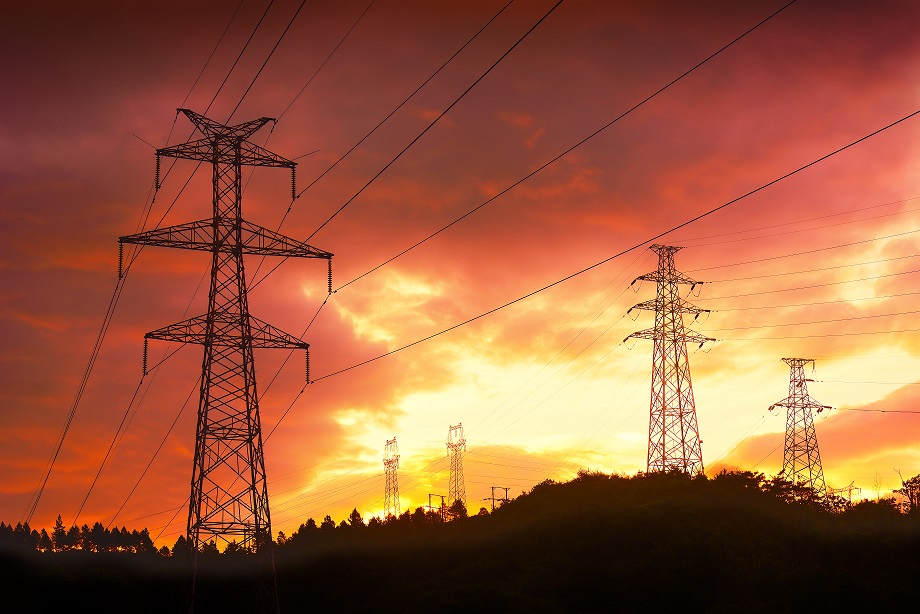New measures aimed at promoting electrification and deployment of renewable energies
Published on 27th September 2022
The changes introduced by Royal Decree-Law 14/2022 in terms of energy include, among others, a modification of the Regulation on Thermal Installations in Buildings, measures aimed at facilitating the start-up of installations for self-consumption of electrical energy, accelerating the processing and authorisation of installations, as well as measures in relation to the development of the Hydrogen Roadmap.

In its extraordinary session of 25 August, the Plenary of the Congress of Deputies validated Royal Decree-Law 14/2022, on economic sustainability measures in the field of transport, grants and study aid, as well as energy-saving and efficiency measures and ways to reduce energy dependence on natural gas (hereinafter, "RDL 14/2022").
The set of measures approved is organised under five headings, the fifth of which contains the measures on energy and public procurement. Below we analyse the measures aimed at the energy sector, which include (i) those aimed at promoting energy saving and efficiency; and (ii) those aimed at promoting electrification and the deployment of renewable energies.
Measures to promote energy-saving and efficiency
The first set of measures concerns the modification and reinforcement of certain obligations contained in the Regulation on Thermal Installations in Buildings ("RITE"), with respect to buildings and premises for administrative, commercial, cultural, entertainment, catering and transport use, and will be in force until 1 November 2023. Specifically:
- The limitation of heating and cooling temperatures is modified to 19°C and 27°C, respectively.
- Facilities shall provide information on the implementation of these measures through the use of information signs or displays visible from the entrance or access to the buildings.
- Buildings and premises with access from the street shall be fitted with a door locking system to prevent doors from remaining open permanently, regardless of the renewable or non-renewable origin of the energy used for the generation of heat and cooling by heating and cooling systems.
- The lighting of shop windows and public buildings shall be switched off from 10 p.m. onwards.
- For buildings that are required to have an energy performance inspection and whose last inspection was carried out before 1 January 2021, a new inspection must be carried out before 1 December 2022.
Measures to promote electrification and renewable energy deployment
A. Promotion of self-consumption
RDL 14/2022 establishes new measures to facilitate the introduction of renewable generation and encourage self-consumption. Specifically:
- In order to increase the flexibility of self-consumption, the minimum period of permanence in a self-consumption mode is reduced from one year to four months.
- A maximum period of two months is established for the activation of self-consumption installations with surplus with power of less than 100 kW and connected to low voltage. This activation time will be calculated from the time the distribution company receives the necessary documentation to modify the access contract (from the communication of the electrical installation certificate (CIE) by the Autonomous Community), until the time when the communication of the start of the discharge to the grid is received and this is included in the billing.
If this deadline is not met for reasons not attributable to the consumer or the Administration, the consumer will be entitled to an automatic discount on the bill as a "discount for delay in activating self-consumption".
The amount of this discount will be calculated in a similar way to the amount of the simplified compensation, i.e. the consumer is compensated for the delay in processing by taking into account the surpluses that are not being compensated for reasons not attributable to the consumer or the Administration.
This discount will be charged to the distribution company, who will not be able to incorporate it into the remuneration charged to the system. However:
- The distributor may pass this cost on to the electricity supply company if the delay is attributable to inactions, omissions or errors on the part of the supply company.
- If the delay in processing is attributable to the consumer or to the public authorities responsible for energy, the discount will not apply.
In both cases, the distribution company must justify this to the National Markets and Competition Commission ("CNMC") and to the competent energy body of the respective Autonomous Community through the information system provided for in Law 24/2013, of 26 December, on the Electricity Sector.
B. Authorisation procedures for electricity installations
RDL 14/2022 amends Royal Decree 1955/2000, of 1 December, which regulates the transmission, distribution, commercialisation, supply and authorisation procedures for electricity installations, in the following aspects:
- A new paragraph is added to article 115.1 indicating that transmission grid installations that may be considered as singular from a remuneration point of view may begin to be processed even if they have not obtained such classification as singular installations.
- A new paragraph is introduced in article 115.2 to exempt from obtaining a new prior administrative authorisation, requiring only administrative authorisation for construction, in respect to modifications of transmission and distribution installations that have obtained such prior administrative authorisation, and that meet the following conditions:
- They should not be subject to an ordinary environmental assessment, in accordance with the provisions of article 7.1 of Law 21/2013, of 9 December, on environmental assessment.
- They do not lead to changes that exceed the conditions laid down in the prior administrative authorisation and the environmental impact assessment.
- They do not alter the safety of both the main installation and its auxiliary installations in service.
- The implementation of the planned modifications does not require the obtaining of a declaration, in particular, of public utility.
- In the case of modification of substations, involving only the equipment of reserve positions if these already have administrative authorisation, or the renewal of equipment without a change in technical characteristics.
- The repowering of lines by retightening or changing conductors, re-strengthening of supports or installation of electronic devices.
C. Incorporation of storage in facilities with a specific remuneration regime
The definition of type 3 hybridisation contained in Royal Decree 413/2014, of 6 June, which regulates the activity of electricity production from renewable energy sources, cogeneration and waste, is amended to incorporate storage facilities and includes among the causes established for the cancellation of registration in the Register of the Specific Remuneration Regime in a state of operation, non-compliance with the obligation to have metering equipment in these hybridisations for the determination of the energy generated.
D. Renewable gases
A number of measures are implemented in connection with the development of the "Hydrogen Roadmap: a commitment to renewable hydrogen". In particular:
- Modifications to connection positions to adapt them to the injection to the grid of renewable gases shall be considered minor modifications and may be processed without the need for administrative authorisation or approval of the execution project.
- Articles 55 and 56 of Law 34/1998 of 7 October 1998 on the hydrocarbons sector are amended in order to exempt all direct lines from the need for authorisation (until now this was only foreseen for direct lines to a single consumer).
- A new article 12 bis is added to Royal Decree 1434/2002, of 27 December 2002, regulating the activities of transport, distribution, commercialisation, supply and authorisation procedures for natural gas installations, in order to establish a series of basic principles for the injection of renewable gases into the transport and distribution networks.
The connection management procedure must be approved by the CNMC, which may modify or establish new deadlines for transporters, distributors and producers of renewable gases.
Should you wish to know more about the new energy sector regulation contained in RDL 14/2022 and its possible implications, please do not hesitate to contact one of our experts listed below or your usual contact at Osborne Clarke.





